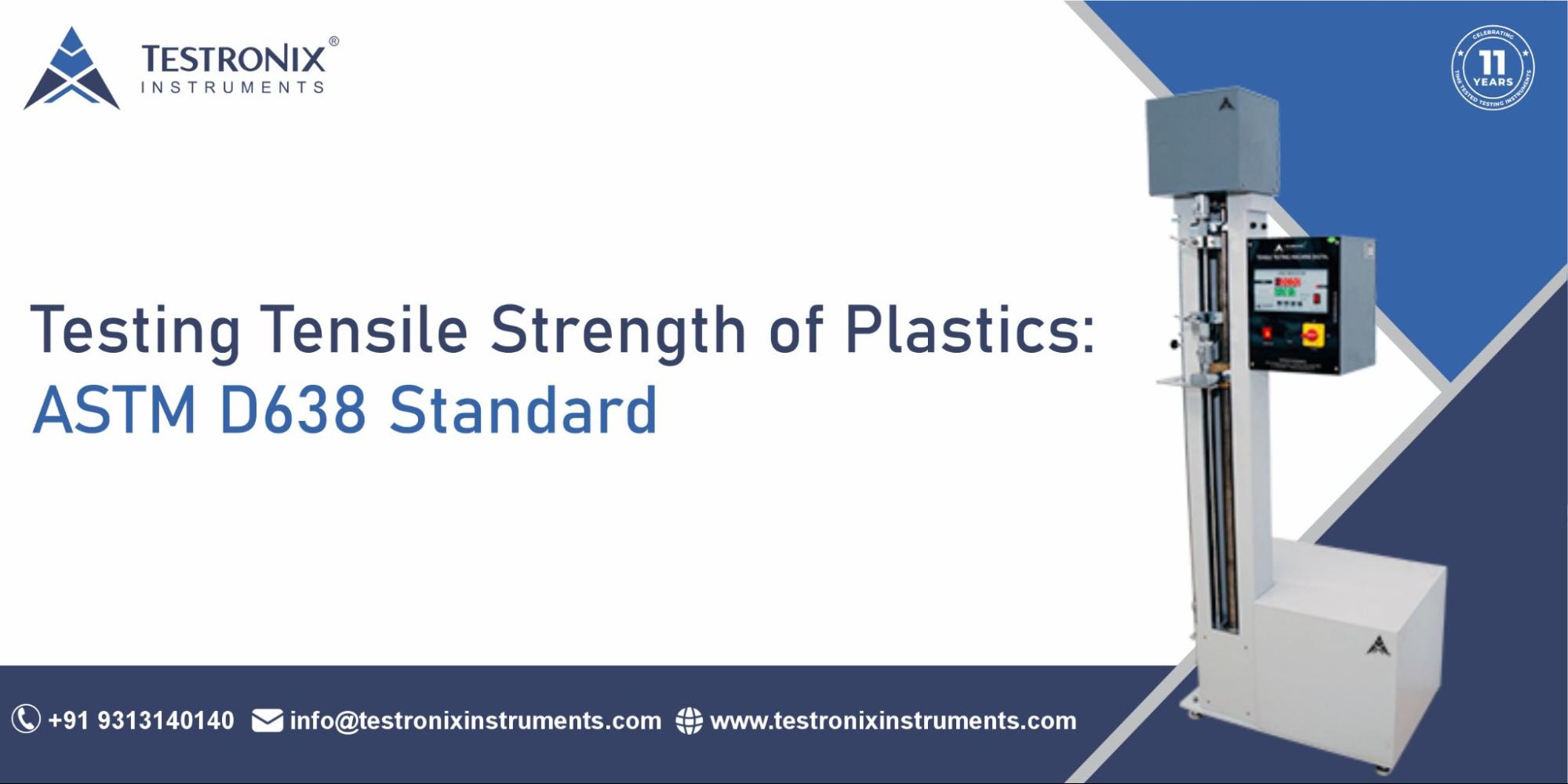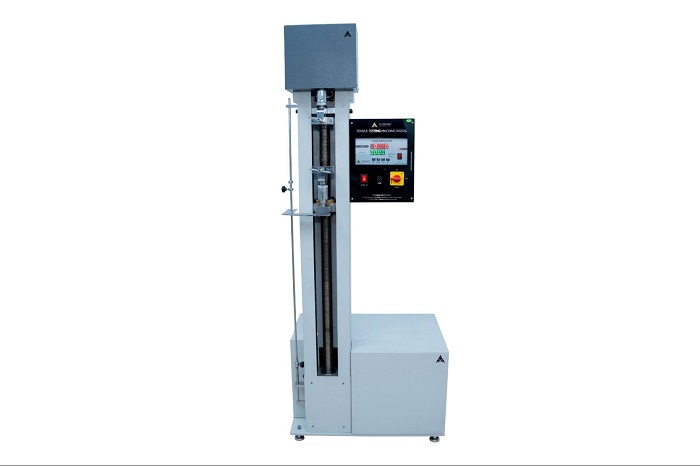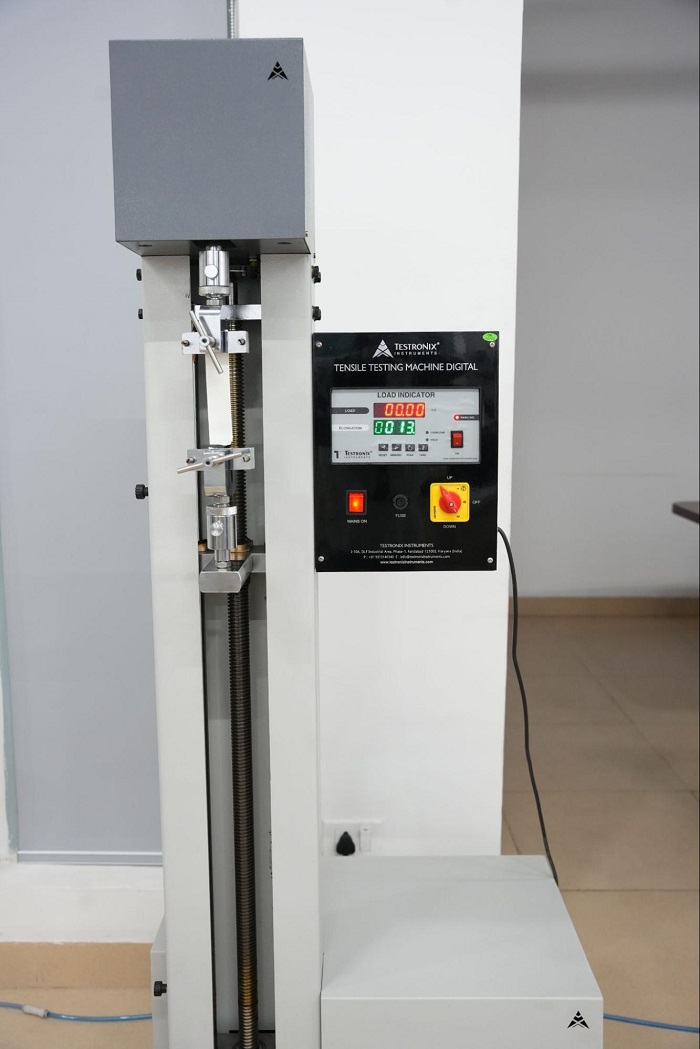Reviewed by Anurag Mishra (Sr. Technical Consultant)

In the industrial world of today, plastics find critical applications both in consumer goods and in automotive components, and the performance of these materials is quite dependent on their tensile strength-that is, resistance to tension failure. It has addressed the crucial issue of tensile testing of plastics, mentioned the problems industrialists come across when they do not pay heed to that important point, and how Testronix's tensile tester that meets the international standard ASTM D638 can help them in the best possible ways.
Tensile strength is a measure of the maximum tensile (pulling) stress that a material can tolerate and when failure will take place. For polymers, it is one of the most essential properties because it corresponds linearly with durability, performance, and reliability in application. There are many factors that influence tensile strength, including plastics and their molecular structure and processing conditions.
Industrialists desperately need reliable testing solutions to conquer these difficulties. That is when the tensile tester comes into play. That is where the tensile tester finds its application. A tensile tester is a special equipment designed to measure how strong materials such as plastics are in tension. It measures how the material behaves in tension before breaking or rupturing.
The commonly known standard for the tensile properties of plastics can be said to be ASTM D638. This standard documents a straightforward procedure for performing tensile tests on reinforced and unreinforced plastics. The specimen shall be prepared from the plastic material, placed in the tensile tester in such a grip system that prevents slippage in the course of the test, and then loaded until the specimen fails under the tensile test. It gives information on yield strength, ultimate tensile strength, and elongation at break, thus providing enough material to enable judgment on performance.

Testronix is one of the top providers in the market with more than 11 years of experience in material testing solutions. The company deals with innovative sustainable solutions and sophisticated testing machines to meet critical requirements set by the modern industry.
Testronix's tensile testers are strictly compliant with ASTM D638 specifications, hence yielding accurate and dependable results. Its machines have some very advanced things like user-friendly software, real-time data analytics, and the most flexible testing parameters. In this way, emphasis on quality and correctness makes Testronix a preferred vendor for businesses that look forward to upgrading their material testing procedure.
Furthermore, ASTM points out that products that are incapable of providing tensile strength can lead to costly recalls and lawsuits. In the study, companies investing in material testing may mitigate these risks by 30% in saving time and money.
The industrialist who ignores testing tensile strength will face consecutive challenges, most of which can be too grave. They include:
Failure of Products: Tensile strength inadequacy may lead to failure, implying unaffordable recalls and damage to reputation.
Risk of Safety: Products that may fail when under stress can put a company at risk, especially in automotive and aerospace, that require structural integrity.
Greater Expenditure: If testing is not carried out, manufacturers will have to absorb the additional expense of material utilization and failure rates.
Adherence to laws: Several industries follow strict laws, primarily concerning property characterization of materials. Failure may invoke legal issues.
When one invests in a tensile tester from Testronix, there are changes in business results. This includes some benefits:
Savings: Tensile strength prevents product failure in the market and saves a manufacturer from expensive product recalls. A product recall could range anywhere from Rs. 50,000 to Rs. 2,000,000 depending on the severity.
Time-Saving: Automated capabilities of Testronix tensile testers ensure saving of time in testing and hence faster decision-making and quicker time-to-market for the products.

Resource Optimization: Appropriate tensile strength testing would ensure that only those materials that meet the performance criteria are used for production which will, in turn, reduce material wastage by 20% in terms of material cost savings.
Better Compliance: Quality is assured by following ASTM D638, and the probability of any legal challenge is also foreseen from corresponding regulatory compliance.
In a nutshell, tensile strength is one of the critical properties that plastics manufacturers must watch for to avoid major product failures, especially in safety-related and regulatory compliance issues. With that said, Testronix offers an advanced tensile tester thus making it perfect for use in an industry that mainly relies on quality plastic materials.
Testronix provides know-how and technology for industrialists to strengthen testing and thus enhance the bottom line. Invest in Testronix's tensile tester today and experience the benefits of superior quality control and cost savings.
Tensile strength is the maximum tension stress a material can bear as it is stretched or tensile elongated before actually breaking.
ASTM D638 gives standard methods for the tensile properties of plastics and ensures results are consistent and reliable.
Automotive, aerospace, packaging, and consumer goods benefit all by carrying out tensile strength testing to develop qualitative products and ensure safety.
Testronix quality is guaranteed in every tensile strength test; it's a promise of quality and excellence in manufacturing. Contact us for a demo and take the first step for assurance of the durability and reliability of your plastic products.
Phone: +91 9313 140 140